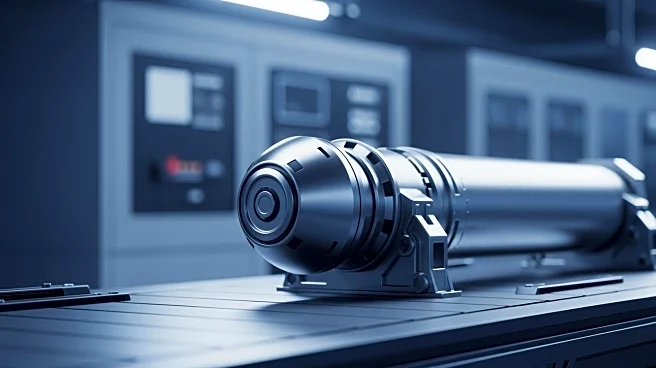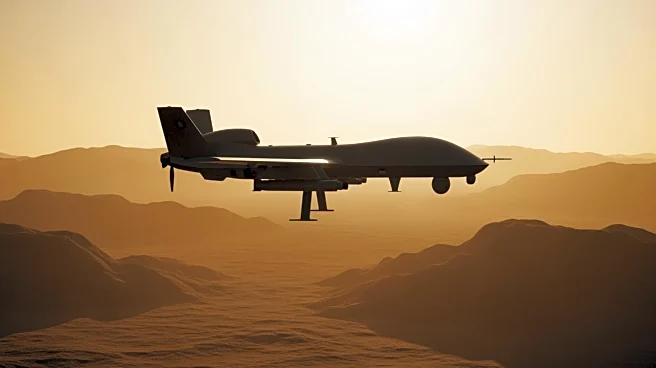What's Happening?
Israel has announced plans to accelerate the production of Iron Dome components, utilizing billions of dollars from U.S. aid. This decision comes in the wake of a fragile ceasefire in Gaza and Lebanon,
where tensions remain high due to Hezbollah's continued armament in Lebanon and Hamas's refusal to disarm. The Iron Dome system, which has been operational since 2011, is designed to intercept short- and medium-range rockets, missiles, and other aerial threats. During the two-year 'Iron Swords' conflict, the system successfully intercepted thousands of rockets launched from Gaza and Lebanon. The Israeli Defense Ministry has not disclosed the exact amount allocated for this purchase, but it is part of an $8.7 billion aid package approved by the U.S. Congress in April 2024. This marks the second acquisition of interceptors from Rafael Advanced Defense Systems within a year, funded by this U.S. aid package.
Why It's Important?
The acceleration of Iron Dome production underscores the ongoing security challenges Israel faces from neighboring regions. The use of U.S. aid for this purpose highlights the strategic partnership between the United States and Israel, particularly in defense and security. The Iron Dome's high interception success rate of 95% is crucial for Israel's national defense strategy, providing a protective shield against potential aerial attacks. This development also reflects the broader geopolitical dynamics in the Middle East, where military preparedness and technological advancements are pivotal in maintaining regional stability. For the U.S., supporting Israel's defense capabilities aligns with its foreign policy objectives in the region, ensuring a balance of power and deterring potential escalations.
What's Next?
As Israel ramps up its Iron Dome production, the focus will likely shift to maintaining and enhancing the system's capabilities to address evolving threats. The ongoing tensions in Gaza and Lebanon may prompt further military and diplomatic actions to stabilize the region. Additionally, the U.S. may continue to play a significant role in supporting Israel's defense initiatives, potentially leading to further aid packages or collaborative defense projects. The international community will be watching closely to see how these developments impact the broader Middle Eastern geopolitical landscape and whether they contribute to long-term peace or further conflict.










